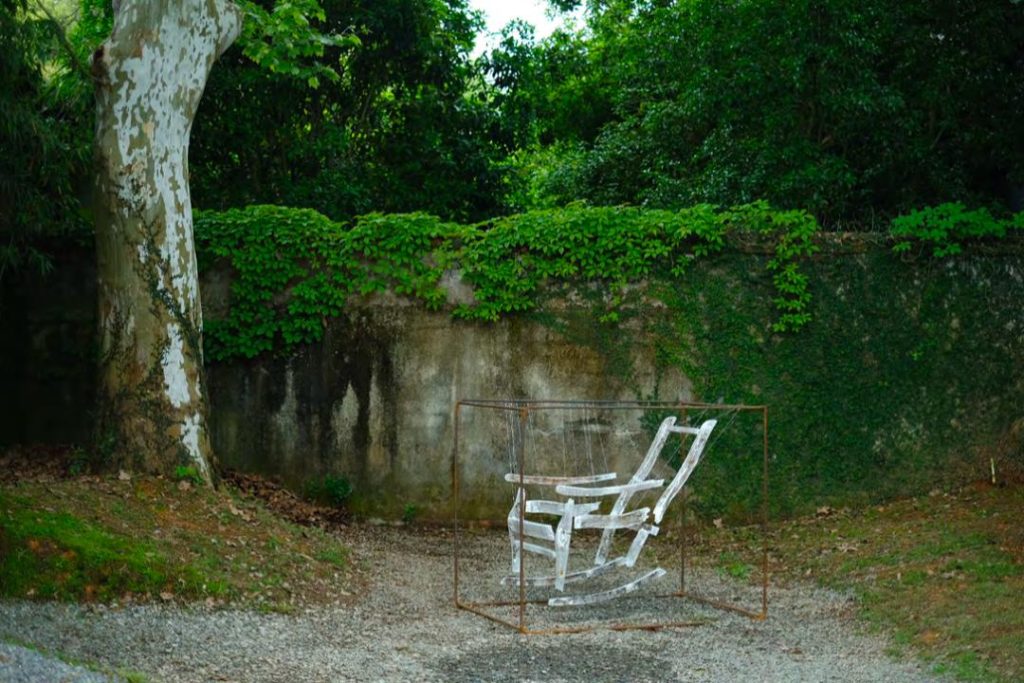
Read More《全国不到100人的冷门行业,这个湖南姑娘成了行业高手》
Positive Reviews: A Devoted Practitioner in an Obscure Field, Infusing New Vitality into Cultural Heritage through Glass Art
Qin Yuling’s story is a two – way journey between “obscurity” and “passion”. In the wave of “mass entrepreneurship and innovation”, most entrepreneurs choose to chase popular sectors, while she goes against the trend. She has been deeply involved in the field of blown glass art, which is practiced by fewer than 10 people nationwide. With nine years of perseverance, she has filled the gap of personal blown glass studios in China. The value of her efforts goes far beyond individual success, reflecting the survival possibilities and cultural significance of niche arts in contemporary society.
First of all, her practice has broken the “industrial dependence” in domestic glass art creation and promoted the localization of the studio movement. As reported in the news, the American glass studio movement revolutionized the traditional glass manufacturing model in the mid – 20th century, while domestic glass art creation had long relied on the factory system, with almost no personal studios. Qin Yuling’s studio built a blowing kiln from scratch, solving multiple problems such as equipment, raw materials, and technology. She even had to design the gas intake ratio of the blowtorch and adjust the cavity ratio by herself. This process itself is a practice of the “studio art” concept. Her success proves that even in a field with a mature industrial system, individual creators can still build an independent creative ecosystem through technological breakthroughs and independent innovation, providing a replicable model for the transformation of glass art from “industrial manufacturing” to “artistic expression”.
Secondly, her creations deeply integrate the “physical properties” and “emotional values” of glass materials, endowing the obscure art with a resonance among the public. Glass, as a material, is often regarded as a symbol of “fragility” and “transparency”. However, Qin Yuling’s works break out of the traditional decorative framework and instead use glass to “seal memories” – from replicating the blue schoolbag of childhood and the fake vase on the refrigerator, to wrapping the wreckage of a rocking chair gnawed by termites with glass, and embedding old cyanotype photos on the glass surface. These works are not only artistic expressions but also “materialized preservation” of individual memories and traces of the era. In a rapidly changing society, this creative logic of “recording fleeting memories with eternal materials” precisely hits the contemporary people’s emotional need for “certainty”. The reason why her exhibitions can attract audiences is that glass art is no longer an “aloof” exhibit but has become an emotional medium connecting the past and the present, and individuals and the era.
Moreover, her survival wisdom provides a model for entrepreneurs in niche fields to “balance ideals and reality”. At the beginning of her return to China, she borrowed 60,000 yuan as start – up capital, worked continuously for 10 hours beside the high – temperature kiln, and supplemented her income through the creation of daily utensils (such as glass gloves and plastic bags). These details show her clear understanding of the “priority of survival”. She did not fall into the romantic trap of “sacrificing everything for art”. Instead, she gradually accumulated creative space through the strategy of “survive first, then do art”. As she explored in her installation work “Do Art after Making Money”: Can one maintain the passion for creation when the economic pressure is reduced? Her practice gives an answer – through the dynamic balance between continuous market exploration (such as exhibitions and utensil sales) and creative investment, she avoids both the compromise of “giving up art for money” and the risk of “talking about ideals while ignoring survival”.
Negative Reviews: The “Coldness” and “Difficulty” of Niche Arts, with Multiple Bottlenecks to Be Broken for Sustainable Development
Although Qin Yuling’s story is inspiring, it also exposes the real dilemmas of entrepreneurship in the niche art field. From the industry ecosystem to personal survival, her success is not replicable. If these challenges cannot be solved, they may restrict the growth space of more “entrepreneurs in obscure fields”.
Firstly, the niche nature of the industry leads to a limited market capacity and narrow commercialization paths. There are fewer than 10 creators engaged in blown glass art nationwide, which means that the market demand, customer base, and industrial chain support are in a very immature state. Qin Yuling’s income mainly comes from exhibitions, utensil sales, and possible customized cooperation. However, as a non – essential consumer good, glass art’s audience is mainly concentrated among art lovers and collectors, with a limited scale. In addition, the high cost of glass creation (kiln maintenance, material loss, and time investment) contradicts the low return (the selling price of a single work is difficult to cover the comprehensive cost). If relying solely on a personal studio, it is extremely difficult to make a long – term profit. The news mentions that she borrowed 60,000 yuan to start her business and is still anxious about repaying the debt, which precisely reflects this contradiction.
Secondly, the technical threshold and the断层 in inheritance may hinder the development of the industry. Blown glass requires long – term technical accumulation – from the physical knowledge of kiln construction (such as gas ratio and cavity design) to the hand – feeling control during the blowing process (such as temperature and blowing force), a large amount of practice is needed. Qin Yuling studied in Japan for six years and went through the trial – and – error process of self – developing the kiln before mastering the core technology. However, there is a lack of a systematic glass art education system in China (compared with the ceramic field, Jingdezhen already has a mature college and workshop ecosystem), which makes it difficult to cultivate talents. If her studio cannot attract or train successors in the future, her technology and creative concepts may face the risk of being lost when she leaves, and the industry will be difficult to form a sustainable inheritance chain.
Thirdly, the limitations of regional resources may restrict the breadth of creation and dissemination. Qin Yuling chose Jingdezhen because of its mature ceramic art ecosystem. However, the material characteristics and creative logic of glass and ceramics are quite different. The industrial chain in Jingdezhen (such as kiln suppliers and raw material suppliers) mainly serves ceramics, and glass creation still needs to solve equipment and material problems independently. In addition, the display and dissemination of glass art have higher requirements for space and technology (such as the transportation of large – scale installations and constant – temperature and humidity preservation). As the “Ceramic Capital”, Jingdezhen’s art market and audience are more familiar with ceramics than glass, which may affect the market acceptance of glass works.
Suggestions for Entrepreneurs: Key Strategies for “Rooting” and “Breaking through the Circle” in Obscure Sectors
Qin Yuling’s experience provides valuable inspiration for entrepreneurs in niche fields. Combining her practice and industry pain points, the following suggestions may help more “entrepreneurs in obscure fields” find a balance between survival and development:
-
Precisely select a niche sector and dig out the “rigid – demand value” in the “obscurity”
Obscurity does not mean valueless. The key is to find the connection point between the field and social needs. Qin Yuling’s success lies in transforming glass art from “decorative function” to “emotional recording”, endowing it with the new value of a “memory carrier”. When entrepreneurs choose an obscure field, they need to think: Can this field meet the emotional, cultural, or functional needs of a specific group of people? For example, traditional handicrafts can be combined with “national trend” and “intangible cultural heritage inheritance”, and niche technologies can target “pain points in vertical industries”. By digging out the “rigid – demand value” in the “obscurity”, the target audience can be effectively expanded, and the market education cost can be reduced. -
Build a dual – wheel – drive model of “survival – creation” to avoid the “idealist trap”
Entrepreneurs in niche fields need to balance short – term survival and long – term ideals. Qin Yuling supplements her income through the sale of daily utensils while reserving core creative time. This strategy of “using commercialization to support art” is worth learning. It is recommended that entrepreneurs design the ratio between “basic income sources” (such as practical products and customized services) and “core creative investment”. For example, spend 70% of the time on business that can be quickly monetized and 30% on long – term art/technology accumulation to ensure a stable cash flow without giving up the core goal. -
Make good use of regional and ecological resources to reduce the cost of “building from scratch”
Qin Yuling chose Jingdezhen, taking advantage of its mature art ecosystem (such as factory resources, art atmosphere, and potential customers). When entrepreneurs enter an obscure field, they should first investigate whether there are relevant industrial clusters or cultural ecosystems to rely on. For example, traditional handicrafts can move closer to areas with concentrated intangible cultural heritages, and entrepreneurs in niche technology sectors can settle in professional incubators. By “riding on the wave”, the costs of equipment, networking, and market expansion can be reduced. At the same time, the regional label (such as “Jingdezhen glass artist”) can be used to enhance self – recognition. -
Pay attention to technology inheritance and brand dissemination to create “irreplaceability”
The core competitiveness in niche fields often lies in “unique technology” and “personal brand”. Qin Yuling’s irreplaceability lies in being “the first person to build a personal blown glass studio in China”, and her technical accumulation and creative concepts are difficult to replicate. Entrepreneurs need to transform personal abilities into technical assets of the team or the industry through patent applications, technical document compilation, and apprentice training. At the same time, expand brand influence through exhibitions, social media, and cross – border cooperation (such as co – branding with curators and designers), transform the “obscurity” into a “unique label”, and attract target customers and supporters. -
Pay attention to policy and capital dynamics and strive for external support
In recent years, the state has increased its support for cultural and creative industries, intangible cultural heritage inheritance, and niche arts (such as art funds, entrepreneurship subsidies, and exhibition support). Entrepreneurs should actively pay attention to relevant policies and apply for financial or resource support. At the same time, they can explore cooperation with art galleries, art institutions, and cultural enterprises to obtain funds and exposure through project – based cooperation. For example, if Qin Yuling’s exhibition can receive support from local cultural funds, it can relieve the economic pressure of creation and exhibition arrangement, allowing her to devote more energy to the works themselves.
Qin Yuling’s story is a spark sparked by the collision between “passion” and “reality”. She has proved in nine years that the obscure field is not a “dead end” but a “blue ocean” waiting to be explored. For entrepreneurs, choosing an obscure sector requires courage, but more importantly, wisdom – while adhering to passion, solve survival problems with rational strategies, dig out the value of the field with innovative thinking, and connect resources and the market with an open mind. Only in this way can the “obscure” truly become “popular”, and the niche can grow into the mainstream.
- Startup Commentary”Three post-2005 entrepreneurs are reported to have secured a new financing of 350 million yuan.”
- Startup Commentary”Retired and Reemployed: I Became Everyone’s “Shared Grandma””
- Startup Commentary”YuJian XiaoMian Breaks Issue Price on Listing: Where Lies the Difficulty for Chinese Noodle Restaurants to Break Through in the Market? “
- Startup Commentary”Adjusting Permissions of Doubao Mobile Assistant: AI Phones Are a Flood, but Not a Beast”
- Startup Commentary”Moutai’s Self – rescue and Long – term Concerns”




